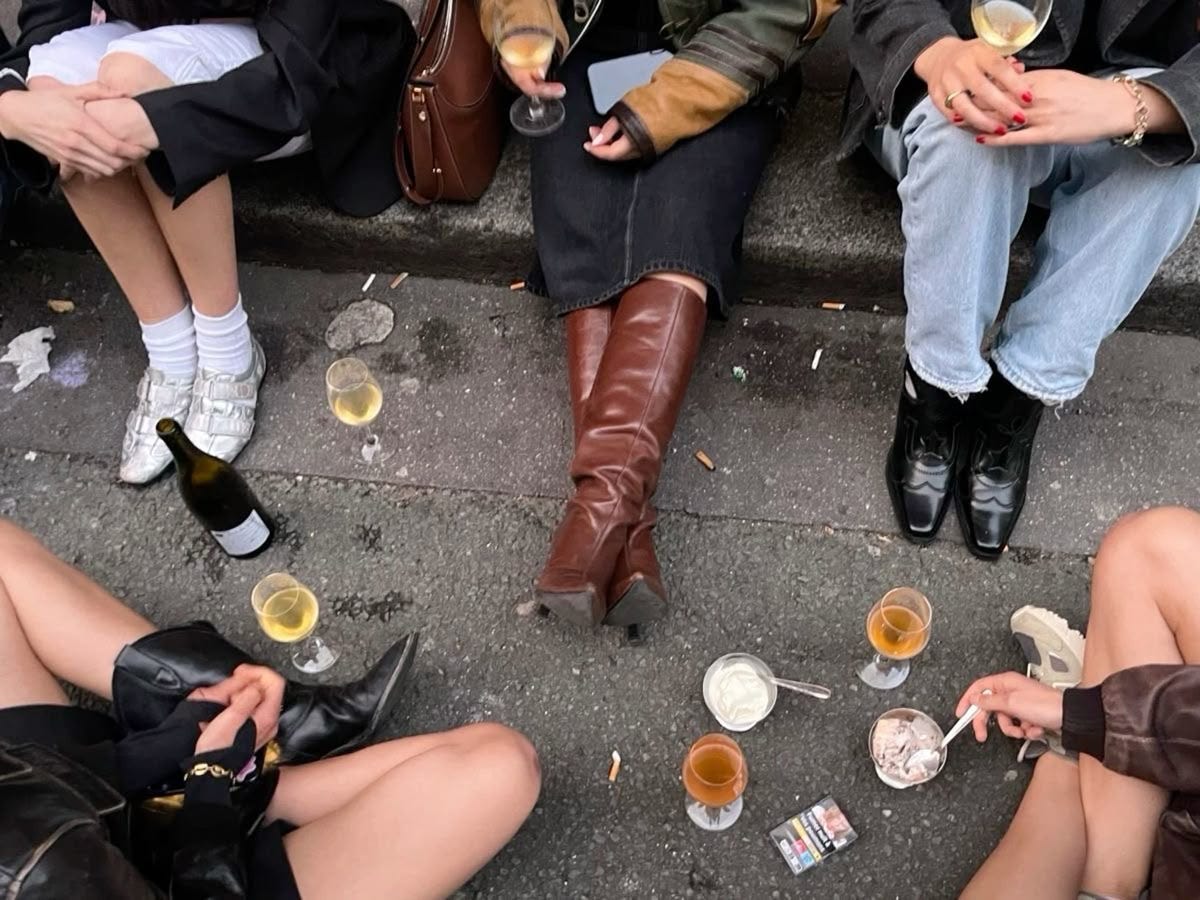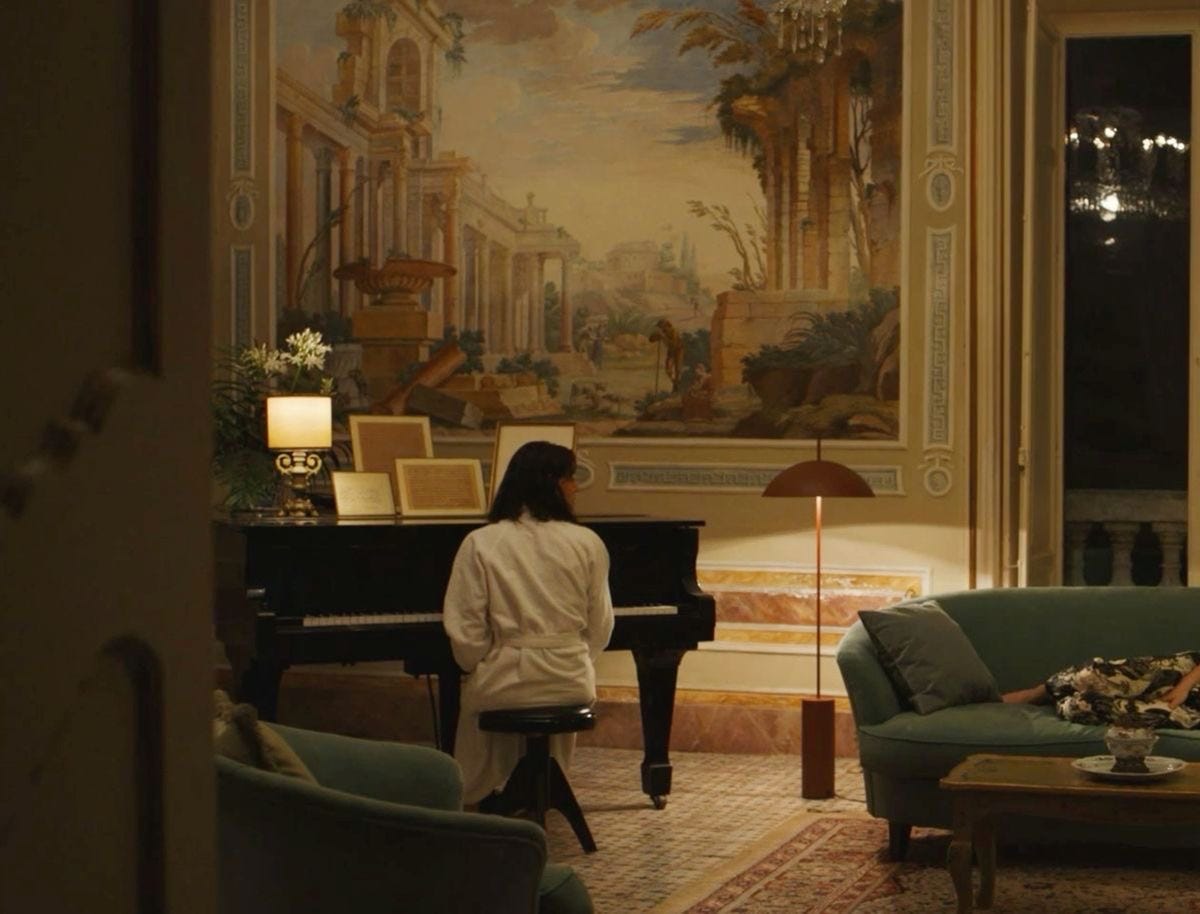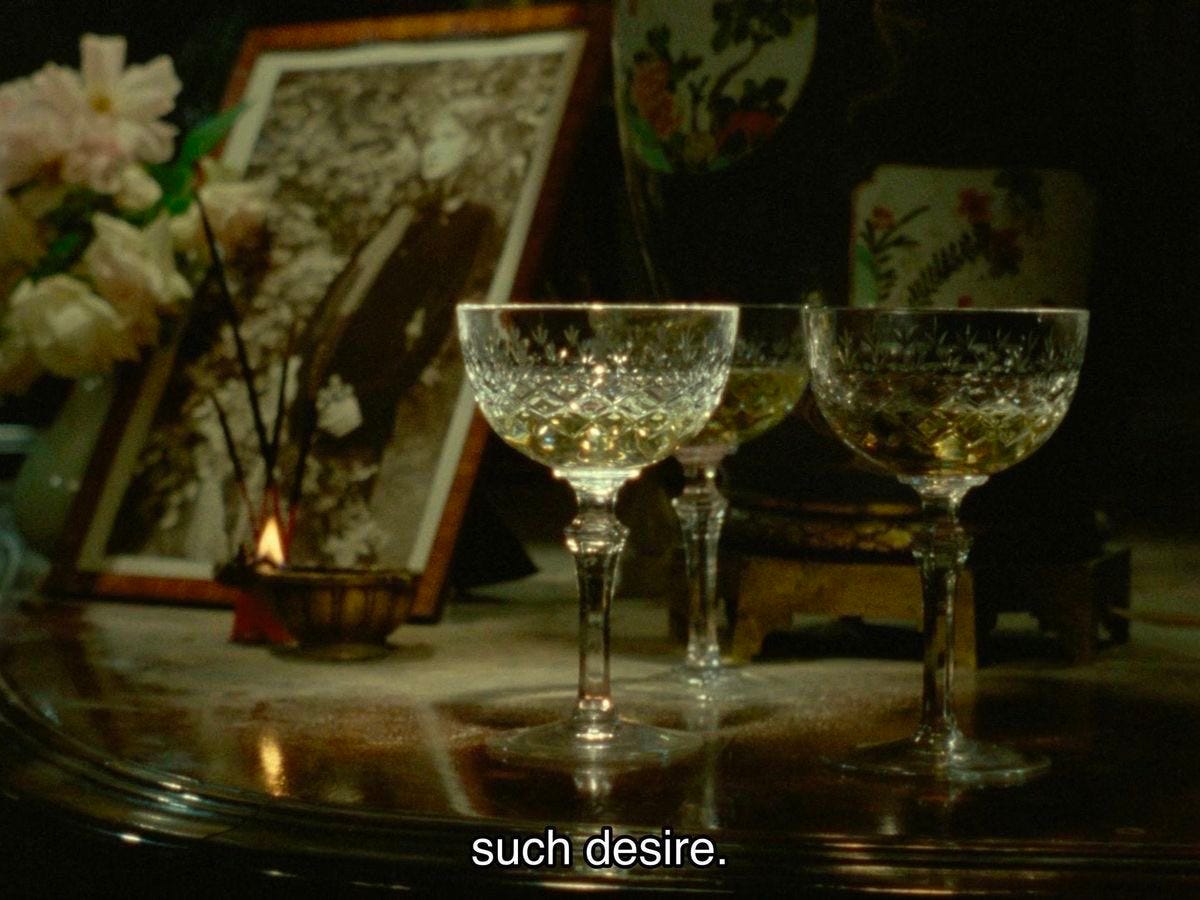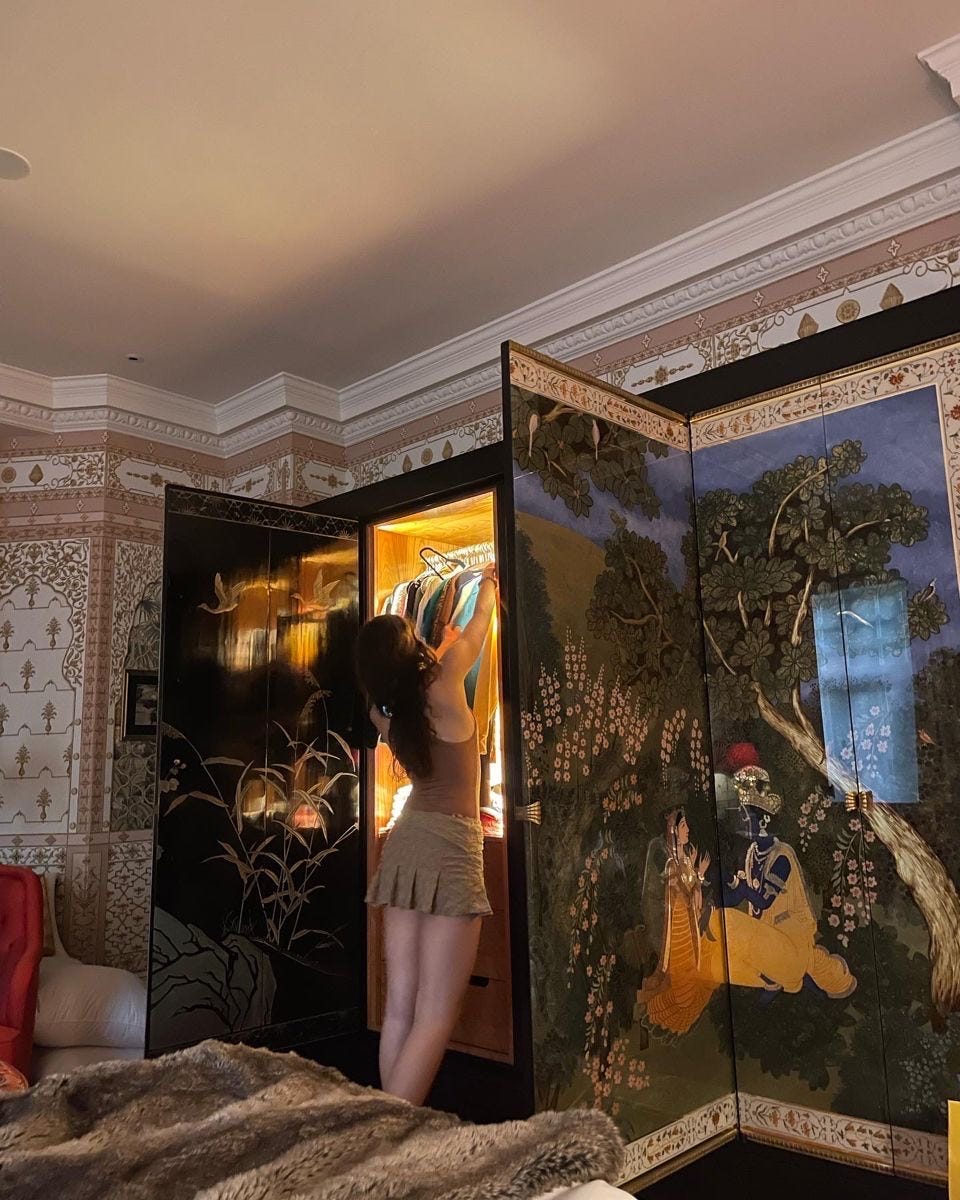the myth of the magical twenties
there is a story you’re handed, somewhere between adolescence and adulthood — that your twenties are supposed to be it. the decade of becoming. of freedom, spontaneity, romantic chaos, creative breakthroughs, career highs, and emotional clarity that arrives just in time for your well-lit apartment and oat milk matcha ritual. it’s not even always spoken aloud, but it’s everywhere — built into instagram captions, movie montages, graduation speeches, and the slow, careful language of marketing: “this is your time.” “these are your golden years.” “you’re going to find yourself.”
but most of us don’t find ourselves in our twenties. not really. what we find is a strange, often painful limbo between who we thought we’d be and who we actually are. we find burnout that arrives faster than success. we find breakups that feel less like drama and more like emotional unpaid labor. we find ourselves quietly grieving versions of the future we assumed would be here by now — a clearer sense of purpose, a stable income, a friend group that feels like home, a body that feels like ours. instead, we get paperwork, identity confusion, rent anxiety, hormonal whiplash, existential dread, and a deep, private ache we’re too embarrassed to name out loud: is this really all there is?
your twenties are not the highlight reel. they’re the rough cut. they’re the footage no one shows — the scenes where you’re in your childhood bedroom trying to remember who you were before you got so tired, the awkward coffee meetings where you pretend to be more ambitious than you feel, the nights spent half-crying in a half-clean kitchen, holding your breath while checking your bank balance. this decade is less about blooming and more about shedding — illusions, attachments, half-formed dreams, and the deep, culturally planted belief that if you just do everything right, your life will eventually feel like a rom-com set in brooklyn.
some of the disappointment of your twenties comes from the sheer effort it takes to stay afloat. it’s not just emotional — it’s logistical. friendships require scheduling. love requires therapy. careers require self-marketing. even your own healing becomes a full-time job. everything that was supposed to be easy — your body, your beauty, your personality, your plans — starts to shift under the pressure of real life. and while you’re doing all this invisible work, you’re surrounded by curated success stories. you know they’re filtered, but still — it’s hard not to wonder why yours feels harder, lonelier, or more delayed.
but the deeper grief of this decade isn’t just that things are hard. it’s that they’re hard without a name. it’s not a dramatic heartbreak or a plot twist you can cry over. it’s the slow realization that growing up is not the same thing as arriving. that there’s no exact moment where it all makes sense. that you might still be in process — not because you’re behind, but because that’s what it means to be in your twenties. the “becoming” doesn’t happen on cue. and most of us spend years trying to rush through our own softness just to feel more certain.
there’s also something uniquely lonely about being twenty-something in a time like this. the economy is fractured. the climate is in crisis. our attention spans are fried. connection is algorithmic. rest is aspirational. authenticity is monetized. the world feels both too much and too empty. and inside all that noise, we’re still expected to find clarity. to dream. to build a brand out of our personality. to become someone who sounds like they know what they’re doing. but underneath it all, many of us are just scared. not in a loud, panicked way. in a quiet, dull ache kind of way. in a way that makes us scroll past advice posts with a mix of yearning and exhaustion.
so if you’re in your twenties and nothing feels magical — you’re not broken. you’re not behind. you’re just finally seeing the myth for what it is: a soft-focus promise that was never meant to hold the weight of real life. the real twenties — the honest ones — are messy, muted, and deeply in-progress. they are filled with re-introducing yourself to your own emotions, mourning the person you thought you’d be, learning how to cook three meals on repeat, falling in and out of existential dread, apologizing to your inner child, and staying up too late reading essays like this one because you’re scared and hopeful and trying not to give up on the idea that your life can still feel like something.
and the truth is — it can.
just not in the way you were promised.
the magic of your twenties doesn’t come from success or aesthetics. it comes from building a self. slowly. imperfectly. day by day. it comes from noticing what doesn’t feel like you and having the guts to let go of it. it comes from feeling numb, then curious, then alive again. it comes from failing in front of people and forgiving yourself afterward. it comes from choosing to stay — not in the same place, but in the process. and that’s a kind of magic no algorithm can sell you. you won’t get everything right. and you’re not supposed to. but if you can stay with yourself long enough — if you can soften through the disappointment and hold space for the person who is still unfolding — you’ll look back and realize: the magic wasn’t in becoming who you thought you’d be. it was in learning how to be with who you are, even before the story got good.
i have seen some people wake up at 23 with a vague but persistent fear that they’re already behind. others arrive at 29 and feel like their life hasn’t really started. and then there are those who’ve left their twenties behind entirely — carrying grief, pride, regret, and wisdom like mismatched souvenirs from a trip they can’t explain. wherever you are in the timeline, the truth is: most of us were not given a roadmap.
the cultural noise around your twenties is loud about beginnings but quiet about navigation. it romanticizes becoming without preparing you for how destabilizing that process can be. and once it’s over, there’s no retrospective class for “how to make peace with what never happened.” so this is that soft place. a bridge between stages. a conversation between those still in the storm and those standing somewhere on the other side — still drenched, maybe, but more awake.
for those still in your twenties:
1. rewrite the timeline.
whatever you think you’re “supposed” to have figured out by now — question it. timelines are mostly inherited, not chosen. the truth is, most of the pressure you feel comes from invisible scripts you didn’t write. success at 24 is not more impressive than stability at 32. real life unfolds unevenly. your growth might be quiet, your wins might be invisible, and your milestones might not fit on instagram. but that doesn’t make them any less meaningful.
2. stop waiting for clarity. start experimenting.
the idea that you need to “find your passion” is a myth. clarity is usually a byproduct of trying things, not a prerequisite. don’t overthink your way into purpose. let your twenties be a workshop — not a final performance. take jobs. quit jobs. start projects. end relationships. move cities. pivot without shame. the worst-case scenario is not failure. it’s paralysis.
3. treat rest as responsibility, not reward.
burnout doesn’t just happen in careers — it happens in identity. your twenties often involve over-performing: emotionally, socially, even existentially. but the version of you that tries to keep everyone impressed will eventually collapse. rest is not indulgent. it’s part of becoming sustainable. give yourself permission to pause before you fall apart.
4. don’t confuse self-optimization with self-worth.
being better is not the same as being whole. not every moment needs to be productive, educational, or aesthetic. allow for chaos. for cringe. for days that don’t fit into your narrative. your worth is not earned through usefulness or curated growth. it’s already intact — even when you’re lost.
5. make room for revision.
the version of you who dreamed this life didn’t know what you know now. so it’s okay if the dream no longer fits. adjust it. edit the vision. update the language of your desires. real maturity is not doubling down on what you once wanted — it’s knowing when to want something else.
for those who have already lived their twenties:
1. grieve what never happened.
this part gets skipped a lot. people rush to move on or rebrand their twenties as “a wild ride.” but it’s okay to admit that some things didn’t go the way you hoped. maybe you didn’t fall in love. maybe you didn’t find your voice. maybe you lost yourself. name it. mourn it. don’t gaslight your past self into silence.
2. reclaim the pieces that still belong to you.
just because something didn’t work then doesn’t mean it can’t work now. your creativity, your softness, your courage — none of it expired when the decade ended. it’s still yours. and you may be more equipped to hold it now than you ever were back then.
3. forgive your younger self for doing her best with limited tools.
she wasn’t lazy. she was scared. she wasn’t behind. she was overwhelmed. she wasn’t “too much.” she was emotionally unsupervised. every decision she made was part survival, part dreaming. release the judgment. you can’t expect her to have known what it took you ten more years to understand.
4. reflect, don’t revise.
it’s tempting to want to rewrite the past — to edit memories so they look neater, kinder, easier to explain. but the truth is, your twenties were probably strange because you were growing in real time. don’t flatten that messiness. let it be what it was: a decade of deeply unfinished pages. that’s not failure. that’s texture.
5. be the adult you once needed.
whether it’s mentoring someone younger, parenting yourself better, or simply refusing to perpetuate myths that hurt you — this is where your power lives now. your twenties don’t define you, but they inform you. use that information with tenderness.
the truth is, most people carry a version of themselves from their twenties like a ghost — the one who tried so hard, felt so much, hoped so quietly. whether you’re still her, still becoming her, or trying to understand her in retrospect, know this: you didn’t miss the magic. you just found the real story instead. and it’s still being written.









I swear you write the best essays.
"being better is not the same as being whole." - this sentence just rewired my brain